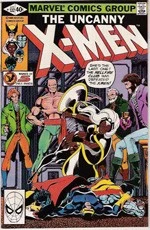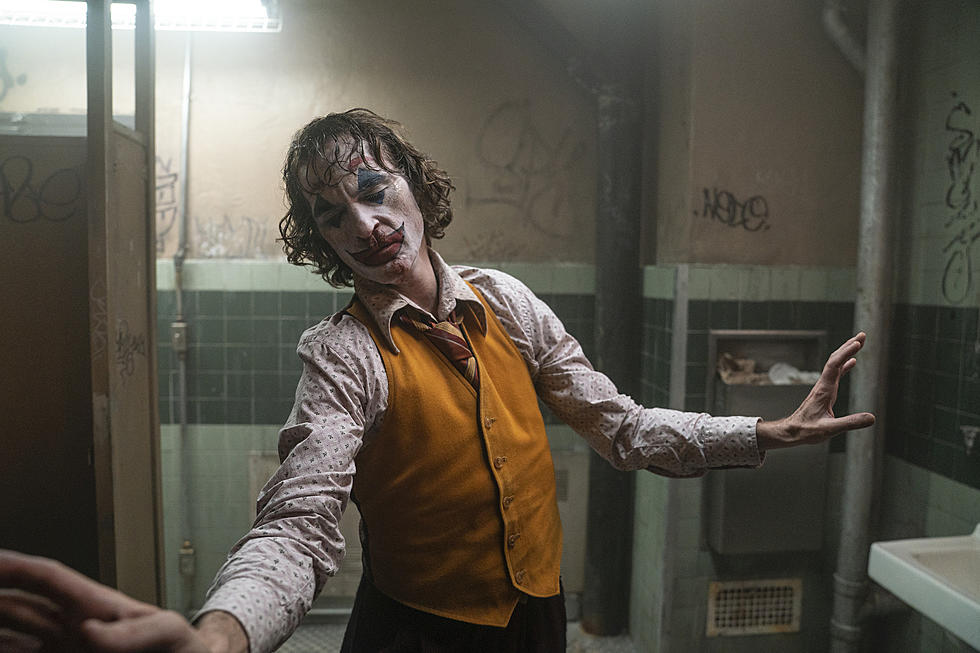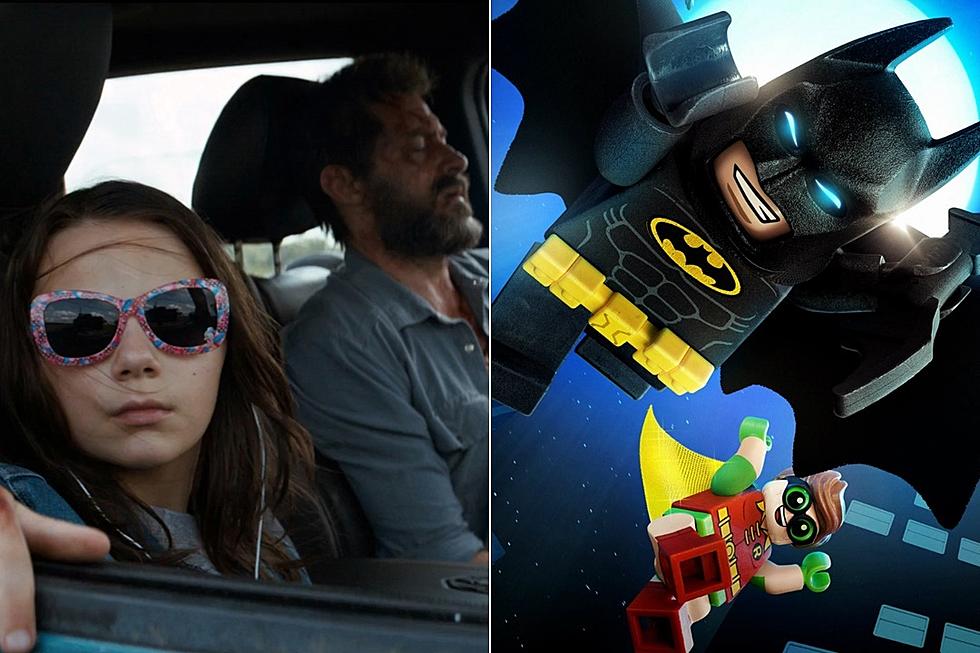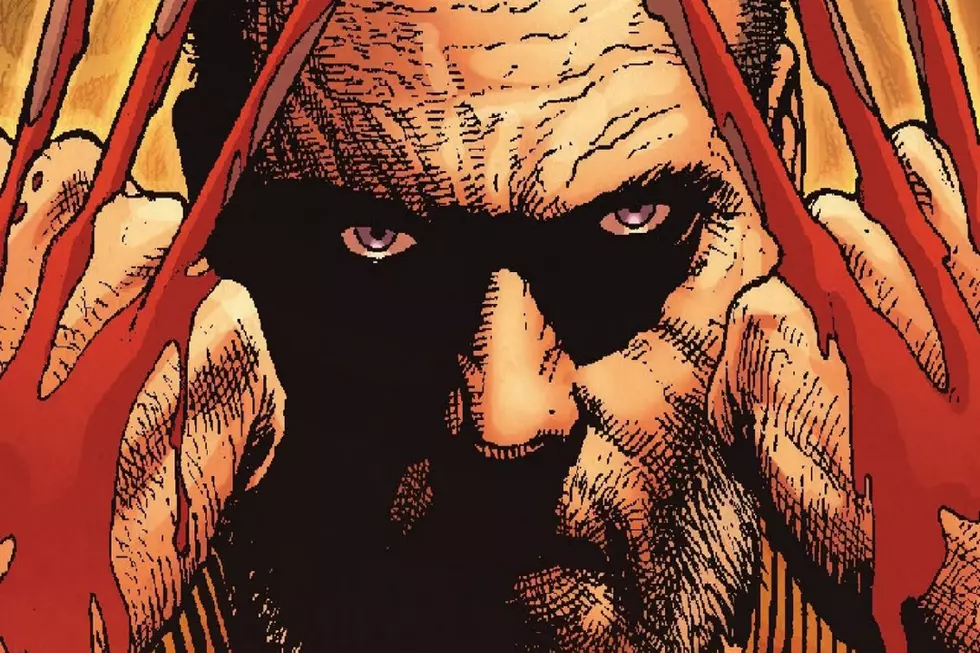
Ask Chris #10: Wolverine. And The True Beginning of 80s & ’90s Comics
Here at ComicsAlliance, we value our readership and are always open to what the masses of Internet readers have to say. That's why we've given Senior Writer Chris Sims the punishment pleasure of stepping into the grand tradition of the Answer Man as he responds to your reader questions!

Q: I want to read more classic Wolverine stories. I've read Origin and Weapon X. Is Claremont/Miller mini any good? --TheGothamite
A: Short answer: Yes.
 Long answer: Yeeeeeeeeeeeeeeeeeesssssss.
Long answer: Yeeeeeeeeeeeeeeeeeesssssss.
The original Chris Claremont/Frank Miller "Wolverine" mini-series is one of my all-time favorite Marvel comics, and for good reason: it's not only the product of two great creators who were at the absolute top of their game, but it set the template for virtually every Wolverine story that came after, with the added benefit that the character hadn't achieved the level of popularity-driven invincibility that he has now. As such, there's both a physical vulnerability to him -- which a lot harder to pull off once it gets to the point where he can re-grow an arm in three panels -- and an emotional vulnerability as well.
The latter is something that you just don't see that often in Wolverine stories, and comes from the fact that for all intents and purposes, "Wolverine" is a noir comic set in Japan, full of ill-fated romances, crime bosses and a grim protagonist who is alternately betrayed by his lover and himself, hooking up with The Wrong Girl and drowning his sorrows in a bar. It's a masterpiece, moody, beautiful and resonant.
And also there are ninjas. Lots and lots and lots of ninjas.If you're looking for other good Wolverine stories, however, there are a couple that spring to mind, chief among them being Mark Millar and John Romita Jr.'s "Enemy of the State." It's one of Millar's best stories, and one of the best examples of his signature big, insanely over-the-top action-movie-style stories done right. And one of the best reasons is that Millar manages to tell a story where Wolverine's the unstoppable killing machine that we all know and love, but still finds that emotional and physical vulnerability to him.
The emotional stuff flows naturally from the plot -- Wolverine gets brainwashed into becoming an assassin for the Hand -- but it's very well-done, with a surprising amount of depth to it. It's a rare example of a book where a character has a dueling set of internal monologues where it actually works, and that alone is an accomplishment. And the physical vulnerability... well, that just results from the fact that Wolverine basically spends the first six issues of the book getting his ass kicked by everyone from Daredevil to the Invisible Woman.
Also, more ninjas. And a shark.

Say what you want about Millar -- lord knows I have -- but the dude knows what to do with a splash page.
 Beyond those, there's one other key moment that you'll need to complete your Wolvereducation: The classic "X-Men" stories that are reprinted in "The Essential X-Men." Specifically, you -- and pretty much everyone else who wants to understand modern comics -- should grab a copy of "Essential X-Men" v.2 and read until you hit "Uncanny" #132, which is quite possibly the most important comic of the modern age.
Beyond those, there's one other key moment that you'll need to complete your Wolvereducation: The classic "X-Men" stories that are reprinted in "The Essential X-Men." Specifically, you -- and pretty much everyone else who wants to understand modern comics -- should grab a copy of "Essential X-Men" v.2 and read until you hit "Uncanny" #132, which is quite possibly the most important comic of the modern age.
It's the Hellfire Club story that serves as a prelude to the Dark Phoenix saga -- which is itself pivotal because various creators have tried to do the same story ten or eleven times since -- and in it, the Hellfire Club systematically takes out the X-Men, including Black Bishop dropping Wolverine through an entire building.
Looking back from today, it's easy to think "psht, that's not going to stop Wolverine," but at the time -- and if you happen to read the issue when you're 12 -- Wolverine wasn't the star. He was an ensemble player, and the de facto stars were Cyclops and Phoenix. It's essentially their story, and Claremont and Byrne set it up that you think it's going to come down to Cyclops, which isn't all that an unreasonable assumption, since he's the guy who had to basically smack Wolverine in the face and tell him to stop being a punk when they fought Proteus.
And then this happened:

And comics were changed forever.
That moment, with Wolverine coming out of the sewer, with something that should've killed him only serving to piss him off, is my nomination for the dividing line between the Bronze Age and the Modern Age (or at least, what we were calling the Modern Age 30 years ago). It's the first big escalation of Wolverine to what he'd eventually become, and it's also the first -- and biggest -- "OH SH-T!" moment of the '80s.
And it's one of many in that run. It's easy to look back on Claremont and Byrne from today and think its overrated because it's been The Standard for 30 years, but it actually is that good. I mean, it'll make you love Wolverine, that's for sure, if only because the next issue has the tagline "WOLVERINE LASHES OUT!" which makes it sound like he's just being a jerk to everyone.
So now that I've talked about how the '80s started...
Q: Is there a particular moment you can think of that officially sparked "the 90's" in comics? What, in your opinion, is the defining characteristic(s) of comics in the 90's that makes them "90's comics"? --angry_ngray
A: Unless you're talking about the Golden Age ("Action Comics" #1) or the Silver Age ("Showcase" #4), it's pretty hard to pin down when eras started. I mean, just above, I talked about "Uncanny" #132 being the start of the modern age, but I've got a friend who swears it's seven months later in "Justice League of America" #184, where George Perez takes over from the late Dick Dillin to draw the JLA, the JSA and the New Gods all team up to fight Darkseid.
If I had to guess, though, I'd say it was this:

The first appearance of Cable. He's a pretty obvious choice, mainly because he's the poster child of what we all think of as "The '90s." I mean, it's got a Liefeld/McFarlane cover, and that pretty much sums it all up. His creation and success are driven by the art -- specifically Liefeld, the other poster-child for the '90s -- rather than story, or even the union of art and story. And all the artistic elements that we associate with the are here: The shoulder-pads, the glowing eye, the improbable reverse-Dr. Strange hair that was dropped toute suite, the guns, the cross-hatching, the pointless accessories -- nice spiked bracelet there, champ, how was the Linkin Park concert? -- it's all here.
But even beyond that, he represents a huge shift on a meta-textual level. For one thing, he was created to be the opposite of Professor X (a man of pure action rather than a man of pure thought) and while that's a pretty logical counterpoint, it's also symbolic of the rejection of the past that was so common in the '90s, and that preceded the backlash of embracing the past sparked by James Robinson, Mark Waid, Grant Morrison, and, later, Geoff Johns.
And in typical '90s fashion, he's got a name that doesn't mean anything. You can look at Cyclops and get how he got that name, you can look at Wolverine and understand the leap there. But Cable? It'd make sense if his name was "Nathan Cable" or something, but no, it's his codename. And why? Why would a soldier from the future name himself after rope? Was he just really into HBO? It makes no sense. It just sounds cool.
And really, that's what the '90s were about: Sounding cool. The era we all think of was marked by the end of the shift from creators telling stories for others to telling stories for themselves -- not that one is inherently worse than the other -- and part of that involves just "hey, that's pretty cool, let's do it." There's no room for what it means, it's all in the (sometimes literally) flashy presentation.
Plus, it was and still is a "hot" issue among "collectors" and speculators (as opposed to readers), the people who did their best to kill comics back in the '90s and continue to be the barnacles dragging the ship down today. So it's got my vote.
And now, the Quick Hits...
Q: If someone wanted to get into comics, but hadn't done so before (read: me) what comics need to be read to catch up on the stories? -- LikeTheBookshop
A: It really depends on what you want to get into. If you want to get into super-hero comics, there's not much that'll help you catch up on, say, the entire DC or Marvel Universe, but there are plenty of really great jumping-on points for individual series. Grant Morrison's "Batman" run, for instance, starts off with what's in the "Batman and Son" trade paperback, and the while the "Incredible Hercules: Smash of the Titans" hardcover is a big ol' slab of comics with a semi-hefty $30 price tag, it's also got two complete arcs that'll fill you in on what happened in "World War Hulk" and get you started with "Incredible Hercules." And there's way more, depending on what characters you're interested in.
Non super-hero stuff -- and even super-hero stuff from independent publishers -- is even easier to jump on, as it tends to be a little more self-contained. You could, for instance, grab the first volume of "Scott Pilgrim" or "Jack Staff" or "Detroit Metal City" or "Empowered" or "Love and Capes" pretty easily and be good to go from there. The problem is that "comics" as a whole aren't something you can really catch up on. But those are all good places to start!
Q: Which is more bewildering--the existing Swamp Thing movies, the Swamp Thing Saturday Morning Cartoon, or the idea of an upcoming Swamp Thing 3D? --Matthew Amylon, via email
A: The existence of Swamp Thing Chalk.
Q: Will it be revealed that Batman is actually Jesus in Return of the Bat? --bestopheles
A: Sure. Right around the same time that they finally reveal Swamp Thing was the Cross.
Q: man why you got to even do a thing. --chance_second
A: Family tradition, man. I'm BOC.
Q: Who would win in a fight between Liara T'Soni and Leliana in the Great Bioware War? And "they make out" isn't an answer. --MagicLoveHose

A: Are you sure? Because I think it's the best answer.
That's all we've got for this week, but if you'd like to have your question answered on ComicsAlliance, tag it on twitter with "#askchris" or send us an email with "Ask Chris" in the subject line!
More From ComicsAlliance









